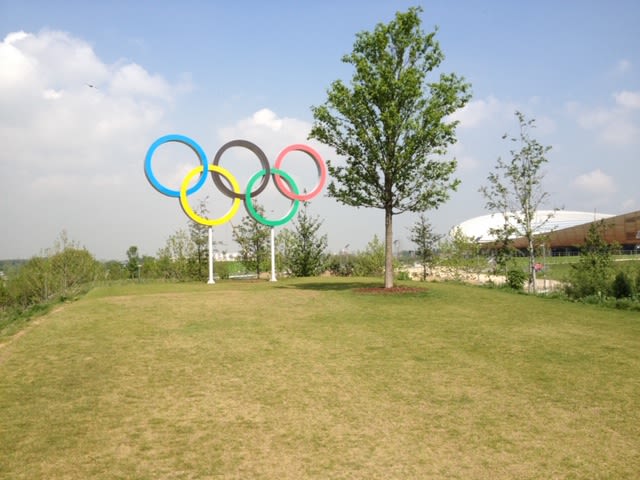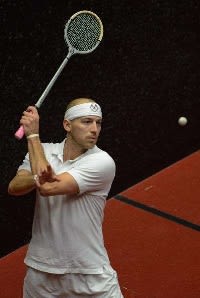Six world champions tell their stories
James Stout

James Stout - rackets
After James Stout won his first rackets world championship in 2008, he was voted Bermuda’s sportsman of the year – a controversial move for the small island in an Olympic year.
He started the sport at 13, and became world champion four times before retiring from singles competition last year.
“It’s never easy to give up something you love,” James said.
“But I felt like I’d achieved everything I wanted to do in the game.”
Now he works coaching at New York’s Racquet and Tennis Club, one of James’s favourites because of the speed of the court.
It’s quite a contrast to Queen’s Club in London, the venue of the 1908 Olympic rackets competition, where James played half of each of his four world titles.
James said: “Queen’s is a very slow court, so the tactics have to change.”
If he could, he would help push rackets into American schools since the sport is largely constrained to private members clubs on the other side of the Atlantic. Sadly, building new courts is a significant financial burden which many cannot justify.
“No one knows about this game,” James said. “It’s never going to be a mainstream sport. The people who play this game do so because they love it.”
“When you watch a game of rackets, it’s hard to grasp how quickly the ball is moving. If you watch it on a screen, you have no idea how fast it is, or how dangerous it is.”
As a coach, he puts plenty of emphasis on safety in a sport where the ball can comfortably reach speeds of 150mph.
James said: “I had a really close call in 2010. When you play rackets, there’s a marker who yells ‘play’ after every time the ball is struck. If the marker feels a player is about to make a dangerous swing, they will yell ‘stop’, ‘time’, anything to let the player know not to hit the ball.
“In this World Championship, I was at the front of this pretty big court. My opponent was turning and facing to swing. I knew with his position, if he hit it, it would not end well for me. I dropped straight onto the floor, I crumbled.
“The marker didn’t realise he was going to hit the ball, but he yelled ‘stop’ too late, and my opponent hit the ball as hard as he could and it was about a foot from where my head had been. It was dangerous, really dangerous.
“That’s part of the excitement of the game, but it’s also something that I teach as a coach. If you’re ever unsure where your opponent is, you should not hit the ball. All it takes is one silly swing.”
In a fast and dangerous sport, time management is an important skill, one which he notices better than most.
“The most common thing I hear when coaching or competing is ‘You don’t have enough time to get into position to hit your shot’”, James said.
“I find it’s the opposite: you have plenty of time, it’s just how you manage it.”

Credit: Ploughing Studios
Credit: Ploughing Studios
